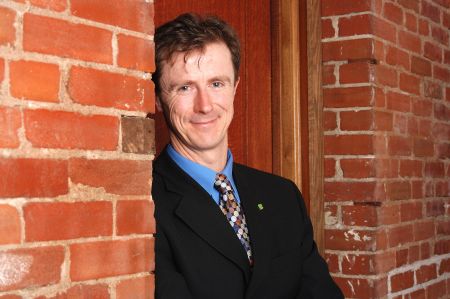It may surprise you that, according to Canada’s constitution, you don’t have the right to a healthy environment — although if you live next to the Sydney Tar Ponds or Boat Harbour, you may not be so surprised.
Ninety per cent of Canadians believe the government should recognize their right to a healthy environment, reports the David Suzuki Foundation, and over half of Canadians believe the government already has. It hasn’t.
Canada is one of only 16 of the 193 UN member states that doesn’t recognize the right to a healthy environment though its constitution, environmental legislation, court decisions or ratification of an international agreement.
“Our charter, which Canadians think is such a great document, is really out of date,” says environmental lawyer and author David Boyd. “And there's a whole bunch of basic human rights that Canadians don't have.”
Boyd is in Nova Scotia this week to launch his new book, A Right to a Healthy Environment: Revitalizing Canada's Constitution.
“There's people working on fracking, there's people working on aquaculture, there's people working on forestry issues, urban issues. And the strength of the constitutional right to a healthy environment is that it will help all of those people,” says Boyd. “It will increase their ability to get information about the issues they're working on. It will increase their ability to participate in decisions on those issues, and ultimately it will increase their access to justice so they can, if necessary, take governments to court to hold them accountable for their actions.”
Boyd tells the story of Beatriz Mendoza, a health care worker living in a poor and heavily polluted area of Buenos Aires, Argentina. In 2004, with her health suffering from the pollution, “She filed a law suit against the federal government, provincial government, municipal government and 44 corporations,” asserting her right to a healthy environment. In 2008, the Supreme Court issued a decision in which it ordered closure of all illegal dumps, improvement of drinking water and sewage treatment, and the development of a regional environmental health plan, among other things.
“That was four years ago and they have made unbelievable progress,” says Boyd. “They've built three water treatment plants, built or upgraded eleven sewage treatment plants, they've cleaned up and closed down over 100 illegal dumps in the watershed, shut down 484 industrial facilitates that were polluting the river … they've increased the number of environmental enforcement officials in that watershed from three in 2008 to 250 today.”
That's more environmental enforcement officials in that one watershed than Environment Canada has for the entire country.
Canada has terrible enforcement of the environmental laws we do have, says Boyd. “I did a piece of research last year where I looked at the enforcement of Canada's most important environmental law, the Canadian Environmental Protection Act, which was passed in 1988. And I added up all the fines that have been under the Environmental Protection Act since that time and it added up to less than one year of fines at the Toronto Public Library for overdue books.”
So is an Environmental Bill of Rights a silver bullet? No, says Boyd, but it would help a lot.
“The experience in the 95 countries around the world that have the constitutional right to a healthy environment is that enforcement increases dramatically,” he says. “It increases dramatically because government has a responsibility based on the constitution which is the highest law. It also increases because people, individual citizens, and environmental groups have new found legal rights to enforce those laws themselves if the government fails to do so.”
Getting the right to a healthy environment in the constitution will not be easy, says Boyd, even with a different federal government.
“There's no doubt that when this issue reaches a certain level of public prominence that corporate Canada will rise up and resist,” says Boyd. “It will be a struggle, it's not question, even though 90 per cent of Canadians support this...It's going to be up to us to make sure the governments we elect do what we want them to do and not what corporate Canada wants them to do."
Boyd says we can look to Indigenous communities for leadership.
“It's important to remember that Indigenous societies have recognized environmental rights and responsibilities in their legal systems for hundreds if not thousands of years,” he says. “So there's that deep bedrock of recognition. It's just the western world that's catching up.”



